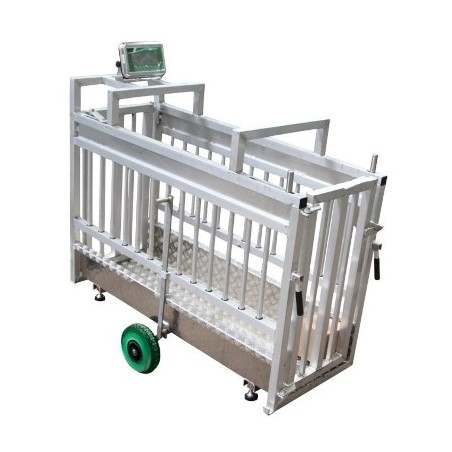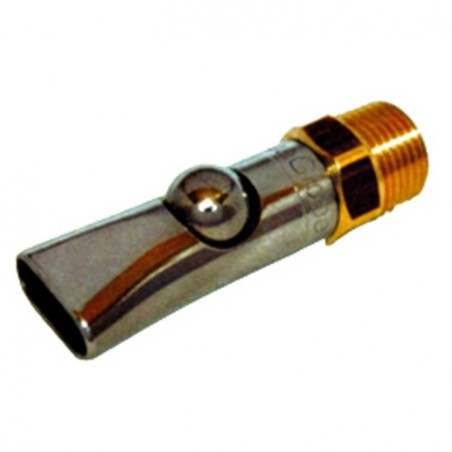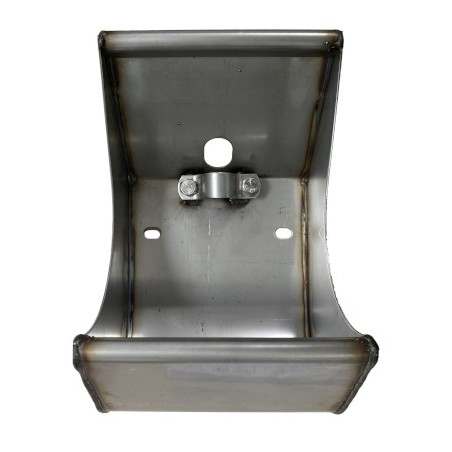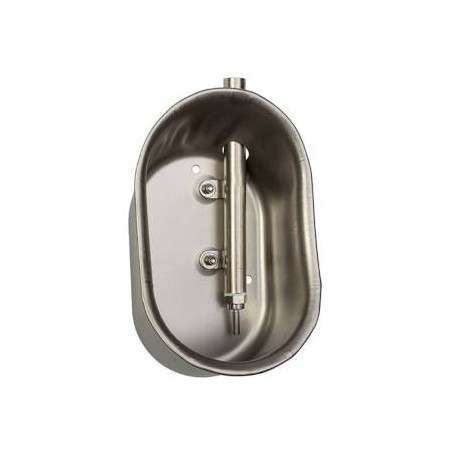Phytases of bacterial origin are exogenous enzymes widely used in monogastric animals’ diets due to their action of hydrolyzing phytate, considered an antinutritional component in foods of plant origin. As a result of the hydrolysis, there is an increase in phosphorus availability, other nutrients, and energy bound to phytate in food. The efficiency of phytase varies according to aspects inherent to its own structure and origin, age and physiological state of the animal, and dietary composition. Therefore, the aim of this study was to evaluate the effects of increasing doses of bacterial phytase (Citrobacter braakii) on performance and carcass characteristics of growing-finishing pigs. A total of 120 barrows weighing 25.16 ± 2.80 kg and 68 days old were submitted to five treatments: positive control diet containing inorganic phosphorus (P) and limestone (Ca); negative control (NC) with reductions in P (by 0.13%) and Ca (by 0.11%); and three negative control diets supplemented with 1500 (NC15), 3000 (NC30) and 4500 (NC45) units of phytase (FYT)/kg.
As a result, daily weight gain in growth phase I (68-91 days) was higher in the positive control, NC15 and NC30, compared to the negative control (1.06, 1.06, 1.06 vs. 0.95, respectively). The daily weight gain in finishing phase II (141-156 days) was higher in the NC15 (1.20 kg) and NC30 (1.14 kg) than in the NC45 (0.94 kg). The final weights (live weight 156) in the NC15 (122.95 kg live weight) were higher than negative control (116.47 kg live weight) and NC45 (114.43 kg live weight).

Overall, it was found that supplementation with phytase between 1500 and 3000 units of phytase (FYT)/kg of feed in diets based on corn and soybean meal with a reduction in inorganic phosphorus (0.13%) and calcium (0.11%) improves the daily weight gain and live weight of animals in the growing phase, which affects performance on finishing phases and slaughter body weight. This input could result in a reduction in the use of phosphorus sources, improving environmental issues with an increase in the main zootechnical parameters.
da Silva CA, Callegari MA, Dias CP, de Souza KL, de Carvalho RH, Alebrante L, da Silva Martins CC, Heck A, Fascina VB. Increasing Doses of Bacterial Phytase (Citrobacter braakii) Improves Performance and Carcass Characteristics of Pigs in Growing and Finishing Phases. Animals. 2022; 12(19): 2552. https://doi.org/10.3390/ani12192552









